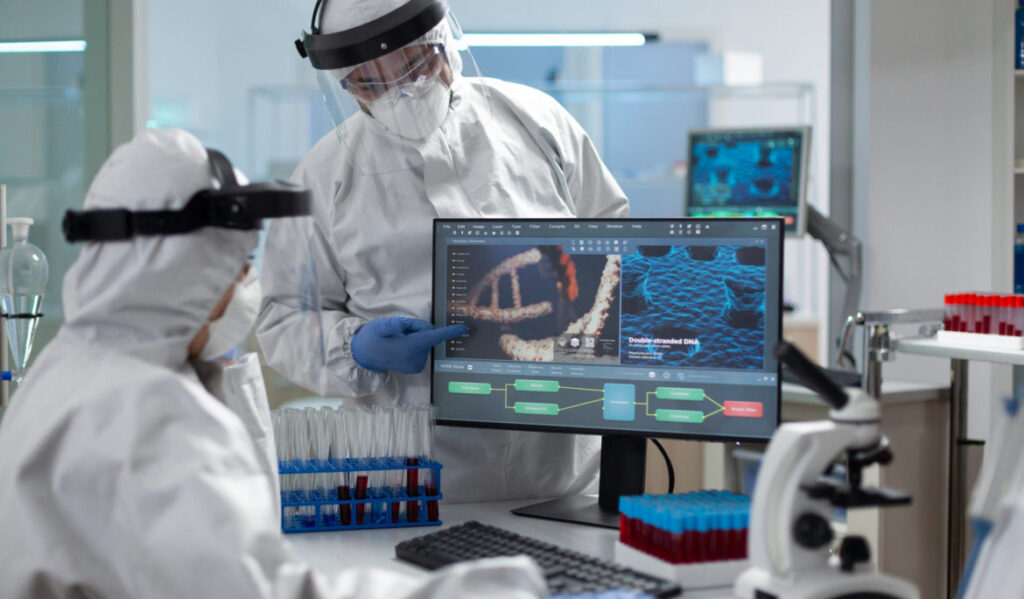Introduction
Assisted Reproductive era (art) refers to scientific methods used to address infertility. It consists of treatments like in vitro fertilization (IVF), egg/sperm donation, and embryo switch.As call for for those offerings grows globally, so do profession opportunities in this evolving and compassionate discipline. In case you’re inquisitive about healthcare and want to make an immediate effect on households, assisted reproductive technology jobs can be the proper profession course.
Why Choose a Career in Assisted Reproductive Technology?
- High demand: Infertility impacts tens of millions of couples international.
- Meaningful work: help human beings recognise their desires of becoming mother and father.
- Numerous Roles: From lab work to affected person care and research.
- Development possibilities: growing discipline with room for specialization and leadership.
How to Start Your Career in ART: Step-by-Step
1. Identify Your Area of Interest
Do you experience technology, patient care, or administrative work? Pick a profession course that aligns together with your strengths.
2. Get the Right Education
Depending for your desired role, you can want:
- A degree in biology, medicinal drug, nursing, psychology, or clinical technology
- Specialised education in reproductive fitness or embryology
3. Gain Practical Experience
- Intern at fertility clinics
- Volunteer in healthcare settings
- Shadow professionals in artwork labs
4. Obtain Certifications (If Required)
- Licensed Embryologist or Andrologist
- Registered Nurse with art specialization
- Genetic Counselor Certification (ABGC within the U.S.)
5. Apply to Clinics, Hospitals, or Research Institutes
Prepare a robust resume highlighting:
- Relevant schooling
- Internships or lab enjoy
- Communique and teamwork skills
Skills Needed for Success in ART Jobs
- Interest to detail: in particular in lab and technical roles
- Empathy: assisting individuals via emotional journeys
- Technical information: understanding complex procedures and device
- Crew Collaboration: operating with doctors, lab personnel, and patients
- Confidentiality: handling sensitive statistics discreetly
Where Do ART Professionals Work?
- Fertility Clinics
- IVF centers
- Girls’s health Hospitals
- University studies Labs
- Genetic Counseling offerings
- Reproductive fitness Nonprofits
Career Growth and Specialization
After you benefit enjoy, you can pass into:
- Senior Embryologist roles
- Clinical Director positions
- Studies & development in fertility innovations
- Instructional teaching in medical universities
You may additionally specialise in niche regions like:
- Cryopreservation
- Preimplantation Genetic checking out (PGT)
- Fertility upkeep for cancer sufferers
Challenges in ART Careers
- Emotional toll of running with patients going through fertility struggles
- Need for non-stop mastering to hold up with advancements
- High responsibility and precision required in processes
In spite of those demanding situations, artwork jobs are highly rewarding for those captivated with helping others.
FAQs
Q1: Do I need a medical degree to work in ART?
A: No longer all artwork jobs require a medical diploma. Positions like embryologist, lab technician, and counselor require specialised schooling or tiers in life sciences, genetics, or psychology.
Q2: Are ART careers only for doctors and scientists?
A: No. There are roles in administration, nursing, counseling, and assist offerings which might be essential to the art manner.
Q3: How long does it take to become an embryologist?
A: Normally 6–eight years (Bachelor’s + grasp’s or PhD + lab experience).
Q4: Are ART jobs available internationally?
A: Yes. Fertility facilities around the world hire educated artwork experts.
Q5: Can I work in ART without clinical experience?
A: Entry-level roles inclusive of lab assistants or administrative positions won’t require scientific backgrounds but will gain from associated understanding or certification.
Conclusion
Assisted reproductive technology jobs offer a satisfying career direction in a hastily advancing clinical field. whether you’re drawn to technology, counseling, or affected person care, there is a position for you in this compassionate industry. As generation evolves and demand will increase, the want for skilled art professionals will only grow.
With the right schooling, experience, and attitude, you could construct a a hit and significant career assisting others create households. Begin exploring opportunities nowadays and make a long-lasting difference in humans’s lives.



